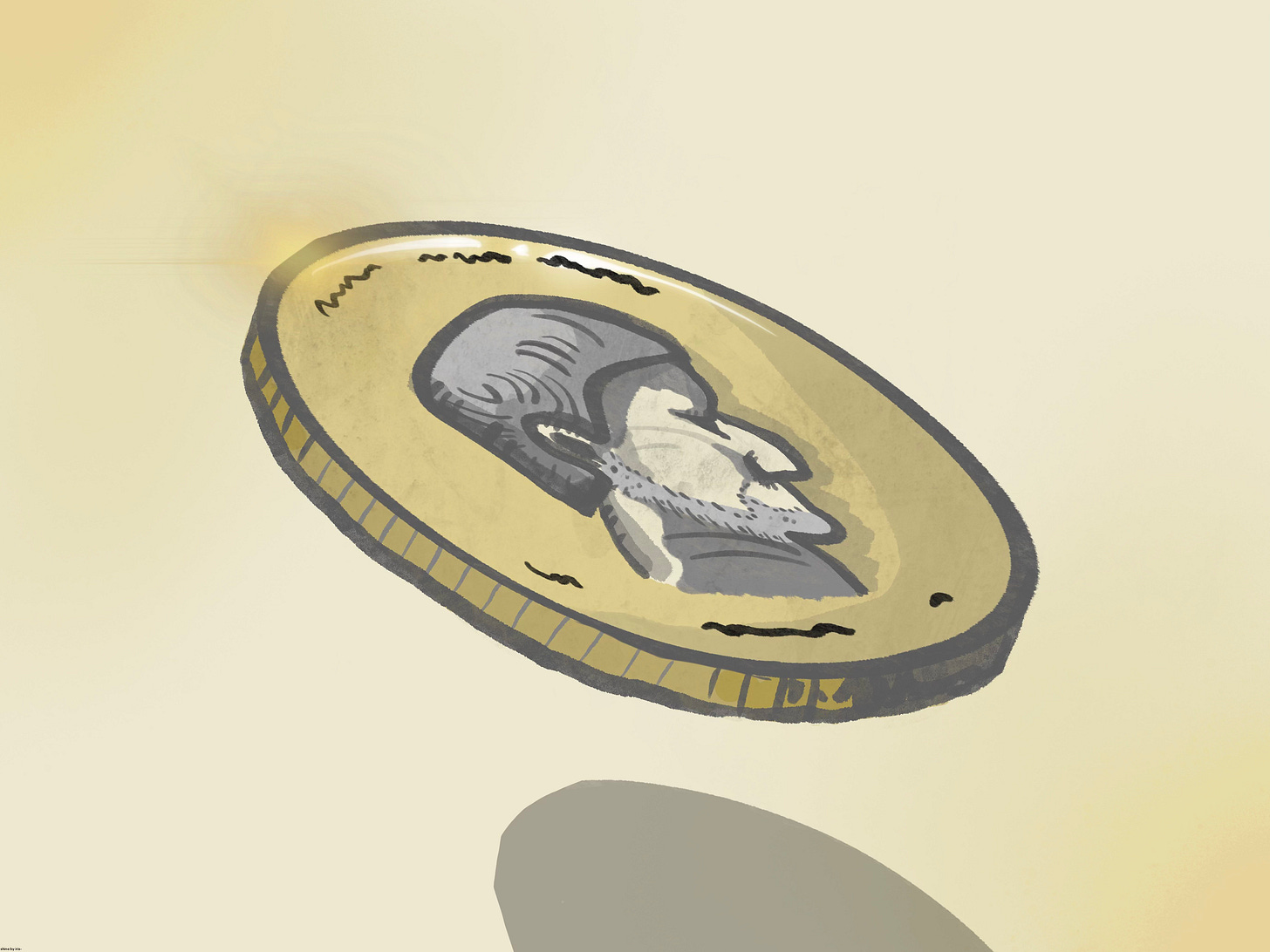Antony and Antony
Mark Antony’s funeral oration is the turning point of Julius Caesar. Brutus had just finished his own speech, and seemed to persuade the people that killing Caesar was the justified killing of a tyrant. Then Antony turns the people’s hearts, and froths them into a bloodthirsty mob, out for revenge:
Friends, Romans, countrymen, lend me your ears; I come to bury Caesar, not to praise him. ... I speak not to disprove what Brutus spoke, But here I am to speak what I do know. You all did love him once, not without cause: What cause withholds you then, to mourn for him? O judgment! thou art fled to brutish beasts, And men have lost their reason. Bear with me; My heart is in the coffin there with Caesar, And I must pause till it come back to me.
Antony’s control over his rhetoric here is an outward sign of his inner self-possession. But a decade or so later, when Antony has become the Antony of Antony and Cleopatra, that self-possession has become absent and alien. Later Antony is rash, arrogant, and inconstant. He yo-yos between fidelity to Rome, and to Cleopatra; between fawning love for his queen, and furious suspicion of her betrayal.
After losing the battle of Actium to (Octavian) Caesar’s forces, the writing is on the wall for Antony’s tragic end. But he retrenches in Alexandria, prepares to fight again, and does that thing warriors in Shakespeare’s plays do: he shakes his fist in defiance of a fate turned against him. To Caesar’s messenger he says,
...Get thee back to Caesar, Tell him thy entertainment: look, thou say He makes me angry with him; for he seems Proud and disdainful, harping on what I am, Not what he knew I was: he makes me angry; And at this time most easy 'tis to do't, When my good stars, that were my former guides, Have empty left their orbs, and shot their fires Into the abysm of hell. ...
Then, later, to Cleopatra:
...Come on, my queen; There's sap in't yet. The next time I do fight, I'll make death love me; for I will contend Even with his pestilent scythe.
On the surface this is not unlike Macbeth’s final speech, during his final battle:
I will not yield, To kiss the ground before young Malcolm's feet, And to be baited with the rabble's curse. Though Birnam wood be come to Dunsinane, And thou opposed, being of no woman born, Yet I will try the last. Before my body I throw my warlike shield. Lay on, Macduff, And damn'd be him that first cries, 'Hold, enough!’
But in fact a noble and heroic end is withheld from Antony. Macbeth’s sentiments are allowed to stand, but Antony’s are soon undermined. His general Enobarbus remarks


